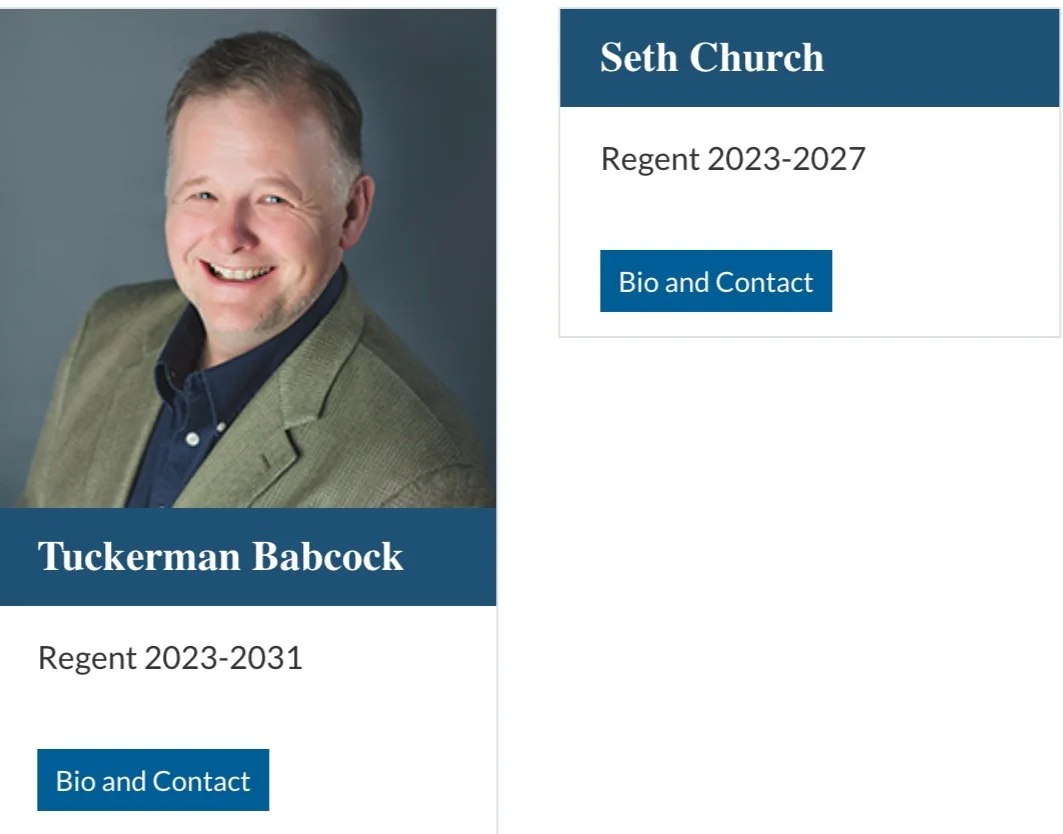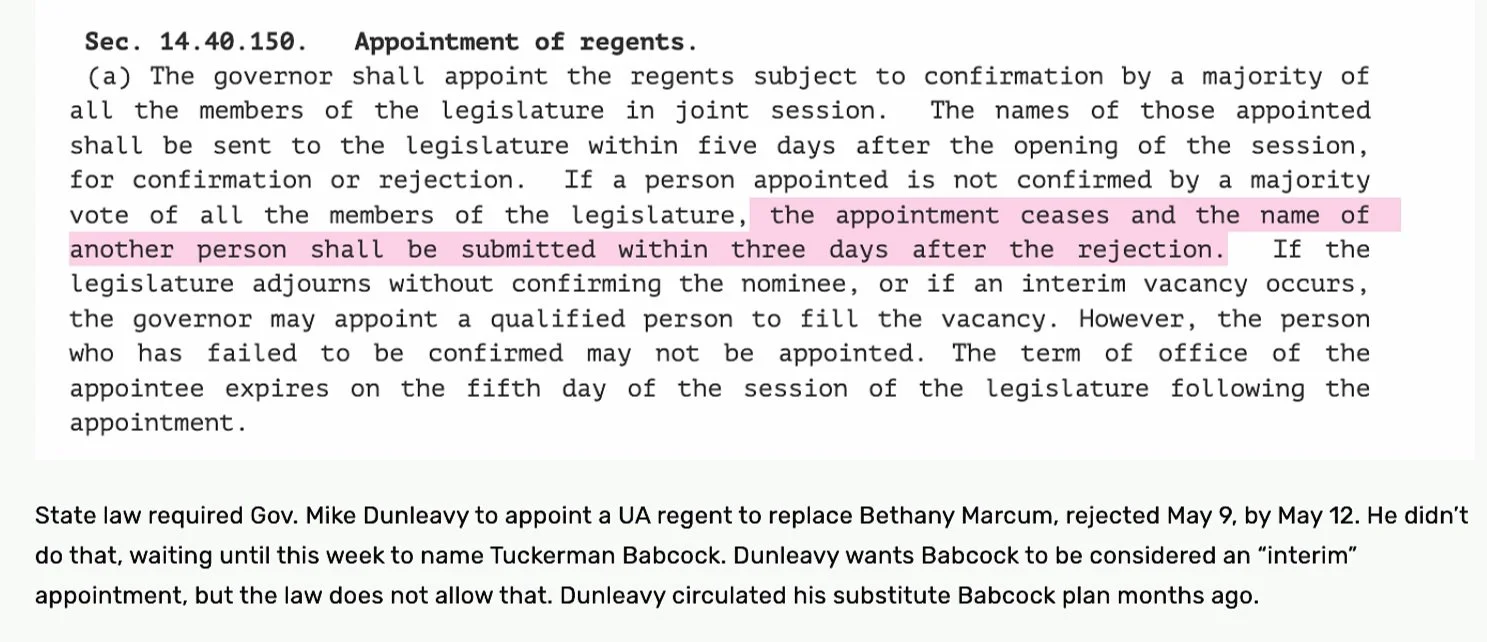Terms for 'interim regents' expire in January, not in 2031 and 2027
Taking its cue from the governor’s office, the University of Alaska says that Tuckerman Babcock’s term on the regents would last until 2031 and Seth Church’s term would last until 2027 if they are confirmed by the Alaska Legislature.
Not exactly.
Their terms on the regents expire on the fifth day of the next legislative session.
While it is highly likely that Gov. Mike Dunleavy will appoint Babcock and Church to the regents again next January, that can’t happen until their current terms expire.
To claim otherwise is to create a false impression about their status on the regents.
The governor’s office and the university should correct the record about where things stand. If the Dunleavy administration believes the clear state law on appointing regents no longer applies, it should explain why.
In any event, both Babcock and Church may be temporary regents, as they will face opposition when a confirmation vote takes place. Church has had little to no involvement with higher education issues, while Babcock was one of the architects of the Dunleavy attack on the university that did lasting damage to the institution.
Both were “interim appointments” to the regents, meaning Dunleavy named them when the Legislature was not in session. To keep them in those seats he will have to appoint them again.
In Babcock’s case, Dunleavy violated a state law that required him to name a replacement for Bethany Marcum within three days after she was rejected by the Legislature.
Dunleavy had made his intention to appoint Babcock clear months in advance, as legislative opposition mounted to Marcum.
Legislators failed to demand that Dunleavy follow the law on the three-day rule, and he didn’t. No one has done anything to try to hold Dunleavy accountable and most Alaska news organizations have never mentioned the issue.
Babcock would have been rejected by the Legislature, which is probably why Dunleavy did not follow the law and put his name forward by the legal deadline.


